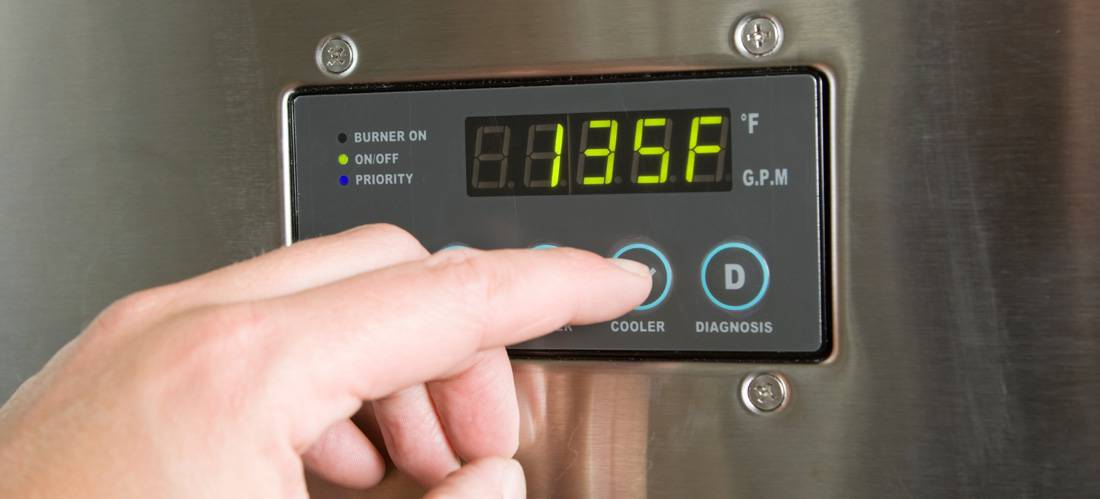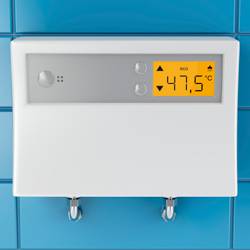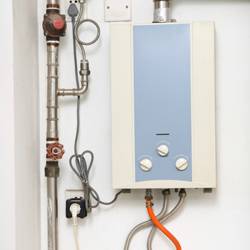Choose your water heater wisely because this is a purchase you don't make often but can have a big impact on your home.
Do you think your basement water heater is too inefficient and wasteful? Try a tankless water heater instead. But before you consider switching, take a look at its pros and cons so you can determine if it’s the right one for your family’s needs and expectations.

Pros of a tankless water heater
1. Lower Operating Costs
We’ll get this straight: installing a tankless water heater will cost you more money than a traditional one. But the real issue is the amount of energy and money you’re going to save in the long run, right? And if that is your concern, then you won’t be disappointed getting one. Because you’re going to save a lot of money by not heating idle water in a tank until someone uses it.
Tankless water heaters provide you with all the hot water you need – in an instant – but in a way that you don’t have to continuously pay for extra energy heating unused water. So even if a tankless water heater will cost you more upfront, the lower operating costs down the line will definitely make up for it.
2. Longer Lifespan
 A traditional tank water heater usually lasts for 10+ years. A tankless water heater can be at its optimum performance for up to 20 years. If you consider where you’re living at as your permanent dwelling residence, a tankless water heater is a wise investment.
A traditional tank water heater usually lasts for 10+ years. A tankless water heater can be at its optimum performance for up to 20 years. If you consider where you’re living at as your permanent dwelling residence, a tankless water heater is a wise investment.
3. Space Saver
One of the biggest advantages of choosing a tankless water heater, aside from the money and energy savings, is that it takes up less space than a traditional water heater. A bulky metal tank expected to heat up around 40 to 60 gallons of water should have at least 60”x24” (height x width) clearance while a tankless water heater just needs 20”x28”x10” (width x height x depth) clearance. If space is a premium at your home, go for the space saving device.
Cons of having a tankless water heater
1. Instantaneous Energy Requirement
 Heating water from a tankless water heater usually requires around 150,000 to 200,000 BTU of propane or natural gas as compared to the 30,000 to 50,000 BTU required by a traditional gas water heater. This is because it needs extra energy to heat up the water and make it available as soon as possible. To make it worse, this will be a continuous basis especially if you have a high pressure main.
Heating water from a tankless water heater usually requires around 150,000 to 200,000 BTU of propane or natural gas as compared to the 30,000 to 50,000 BTU required by a traditional gas water heater. This is because it needs extra energy to heat up the water and make it available as soon as possible. To make it worse, this will be a continuous basis especially if you have a high pressure main.
If you really want to make the switch to a tankless water heater, determine the price of electricity around your area so you can switch from gas to electric if it is cheaper to operate that way.
2. Limited Output
A tankless water heater might not be the best solution if you have a big household. It can only supply a few gallons of hot water at a time so it might not be possible to get all that you need if everyone is taking showers, doing laundry or working on the kitchen at the same time.
3. High Upfront Cost
 A traditional tank water heater, depending on different factors, can cost up to $1,000 but usually it would be just around $300-$400 to install. A tankless water heater can be as low as $1,000 so there’s a big difference when it comes to its price tag. If you don’t have that kind of money to spare upfront, it might not be a feasible option for you.
A traditional tank water heater, depending on different factors, can cost up to $1,000 but usually it would be just around $300-$400 to install. A tankless water heater can be as low as $1,000 so there’s a big difference when it comes to its price tag. If you don’t have that kind of money to spare upfront, it might not be a feasible option for you.
Is a tankless water heater right for you?
Consider the following before getting one:
- Demand - If you need a unit to heat water in one part of the house or the whole house instead
- Type - A tankless water heater run by gas needs proper ventilation. An electric model requires a proper circuit breaker of its own as well as proper voltage and amperage.
- Location - It can be mounted on an exterior or interior wall but not farther than 50 feet from the nearest power source.












Write a Comment